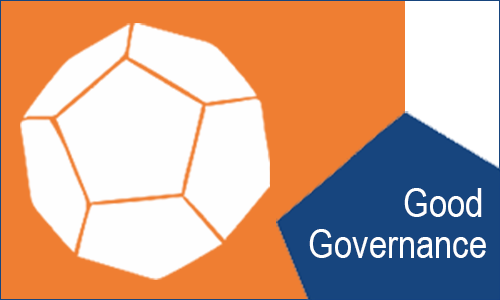ELoGE Frequently Asked Questions
Why should a municipality apply for ELoGE?
ELoGE is both an acknowledgement of achievement and a powerful learning and improvement tool. Obtaining the Label should be a reason for celebration: it acknowledges that a municipality has achieved a high level of good governance, of which the entire community can be proud.
What areas of governance are assessed in the context of ELoGE?
ELoGE offers a way to measure compliance by a municipality with the Council of Europe 12 Principles of Good Democratic Governance. These are:
- Fair conduct of elections, Representation and Participation.
- Responsiveness.
- Efficiency and effectiveness.
- Openness and Transparency.
- Rule of Law.
- Ethical Conduct.
- Competence and Capacity.
- Innovation and Openness to Change.
- Sustainability and Long-term orientation.
- Sound Financial Management.
- Human Rights, Cultural Diversity and Social Cohesion.
- Accountability.
How can a municipality apply for ELoGE?
If a municipality would like to apply for ELoGE, it should contact the entity which is accredited in its region or country to find out the relevant formalities.
- List of accredited entities.
Can a municipality apply for ELoGE if there is no accredited entity for its country or region?
If there is no accredited entity, a municipality can still apply ELoGE as a learning and improvement tool. However, the award of the Label can happen only in exceptional circumstances, for instance when an entity is implementing ELoGE as a pilot project in cooperation with the Centre of Expertise for good governance. To know more about this, please contact us.
What happens if a municipality does not reach the expected level to be awarded ELoGE?
ELoGE can help those municipalities which are not successful in their application for the Label because it can help them understand their shortcomings. They can thus take corrective action, evaluate this process and monitor the distance they still need to cover before achieving the status of European excellence.
How important is ELoGE for citizens?
Citizens have a vested interest in the quality of local governance. They expect and deserve that the quality of public services they receive is good, that the local authority listens to them and takes their needs and legitimate expectations to heart. They have the right to know whether the quality of local governance delivered to them is up to European standards. They also have a direct interest in the continual improvement of good governance and ELOGE is instrumental to this process.
How long is ELOGE valid for?
The dodecahedron symbolising the 12 Principles of Good Democratic Governance is engraved with the date of awarding. Since the municipality is also a learning authority, after receiving the Label it will continue to work on improving. The municipality can therefore decide whether and when it wants to re-apply for the Label.
How can I know more about the concrete experience with ELoGE by other municipalities?
Other municipalities would be happy to share their experience. Please contact the Centre of Expertise if you would like to get in touch with them or to know more about ELoGE.



